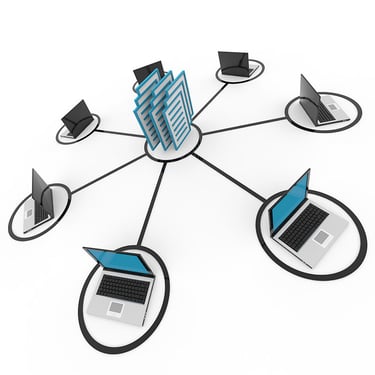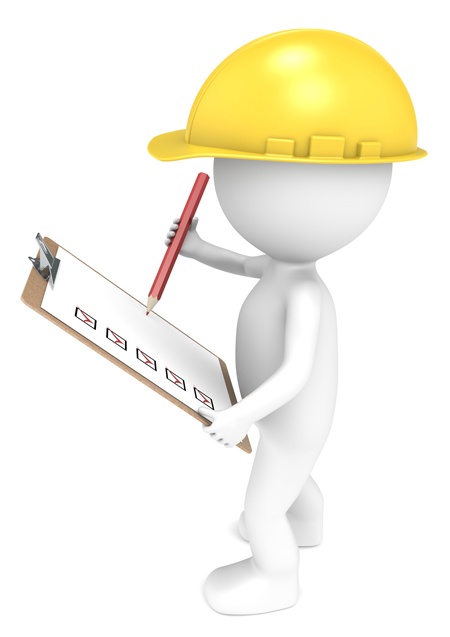What Will Shop Floor Control and Visibility Mean for You?
Many manufacturing software companies claim they offer visibility and control, but gaps in their functionality can leave an unsuspecting customer...
2 min read
David Oeters : October 9, 2013 at 5:01 AM
We’ve gotten a lot of feedback recently on our discussion of the differences between MES and ERP. Obviously there is a real need for information out there, and some confusion on the topic.
 The confusion is understandable. A quick search online reveals little information on why it is important for manufacturers to have both systems. ERP vendors focus on why an ERP is important, and MES vendors focus on their shop floor capability. Many ERP vendors even market MES offerings or modules. It is easy to believe an ERP can do it all, leading many manufacturers to struggle with a less than optimal system.
The confusion is understandable. A quick search online reveals little information on why it is important for manufacturers to have both systems. ERP vendors focus on why an ERP is important, and MES vendors focus on their shop floor capability. Many ERP vendors even market MES offerings or modules. It is easy to believe an ERP can do it all, leading many manufacturers to struggle with a less than optimal system.
But, as we have said, the ERP and MES play different roles and use different structures. The ERP is a transactional system. It logs transactions, one at a time, and creates an ordered system for filing and retrieving the information. An ERP will use the information to analyze patterns and trends – data tools focused on historical information.
Since the ERP is focused on collecting and analyzing historical data, it’s not designed to process a flow of information. It sees data points, not operations. Data points work great in finance, and are necessary for invoices, bills, payments, customers, and other transaction-driven business functions typically handled by the ERP.
The shop floor isn’t transaction-driven, it’s process-driven with a focus on completion of work, not just collecting and organizing information. Information on the shop floor could include formulas, engineering drawings, safety precautions, quality metrics –process-driven information. Many of these are inherently if/then processes, which cannot be handled effectively by a transactional system.
For example, think of a non-conformance on the shop floor. In a transactional system, data would be logged and organized. In a process-driven system, the information would be logged, and a next step in the process would be activated (if X happens, then Y). It is an important difference. An MES offers a clear advantage over an ERP in this case.
 Here’s another way of thinking about it. The ERP works like a stop sign on the road. When a transaction happens, data is entered into the system. No further action can occur until the data is in the system. As data is entered, the next car (data) waits until the preceding one is complete. Think of an invoice. It enters the system, and until it is entered no payment can go out or funds be collected. This is an efficient system for invoicing, but the stop sign, starting and stopping will slow shop floor work, and become detrimental to productivity.
Here’s another way of thinking about it. The ERP works like a stop sign on the road. When a transaction happens, data is entered into the system. No further action can occur until the data is in the system. As data is entered, the next car (data) waits until the preceding one is complete. Think of an invoice. It enters the system, and until it is entered no payment can go out or funds be collected. This is an efficient system for invoicing, but the stop sign, starting and stopping will slow shop floor work, and become detrimental to productivity.
An MES and paperless manufacturing work more like a traffic circle or roundabout. Shop floor work should move at a steady, continuous pace. The roundabout will manage traffic and movement. Progress is managed, visible, continual and controlled.
Shop floor processes operate the same way. Work progresses evenly throughout the day and across the floor, with the MES not only collecting data and marking progress, but driving and controlling it. Different groups or individuals may need to come together to work on a specific process. Work will speed up or slow down naturally as the work orders come in and are filled. The MES will manage the process. It continually provides directions for each step, one at a time and as a whole.
Stop signs are a detriment to progress, and are the least efficient way of moving processes and work. They may keep things from running into each other, but they aren’t going to increase productivity. An ERP is designed to manage, record and analyze business processes, while an MES is designed to boost productivity, deliver shop floor visibility and manage shop floor processes.
Any ERP that promises to do both is either fooling you, selling you two individual systems, or not fulfilling either role effectively.

Many manufacturing software companies claim they offer visibility and control, but gaps in their functionality can leave an unsuspecting customer...

In this virtual and connected world we live in a website should represent who you are and what you do. You can learn a lot from a manufacturing...

1 min read
Struggling to understand how an MES and Paperless Manufacturing will help your shop floor? Look no further than a parking lot for an...